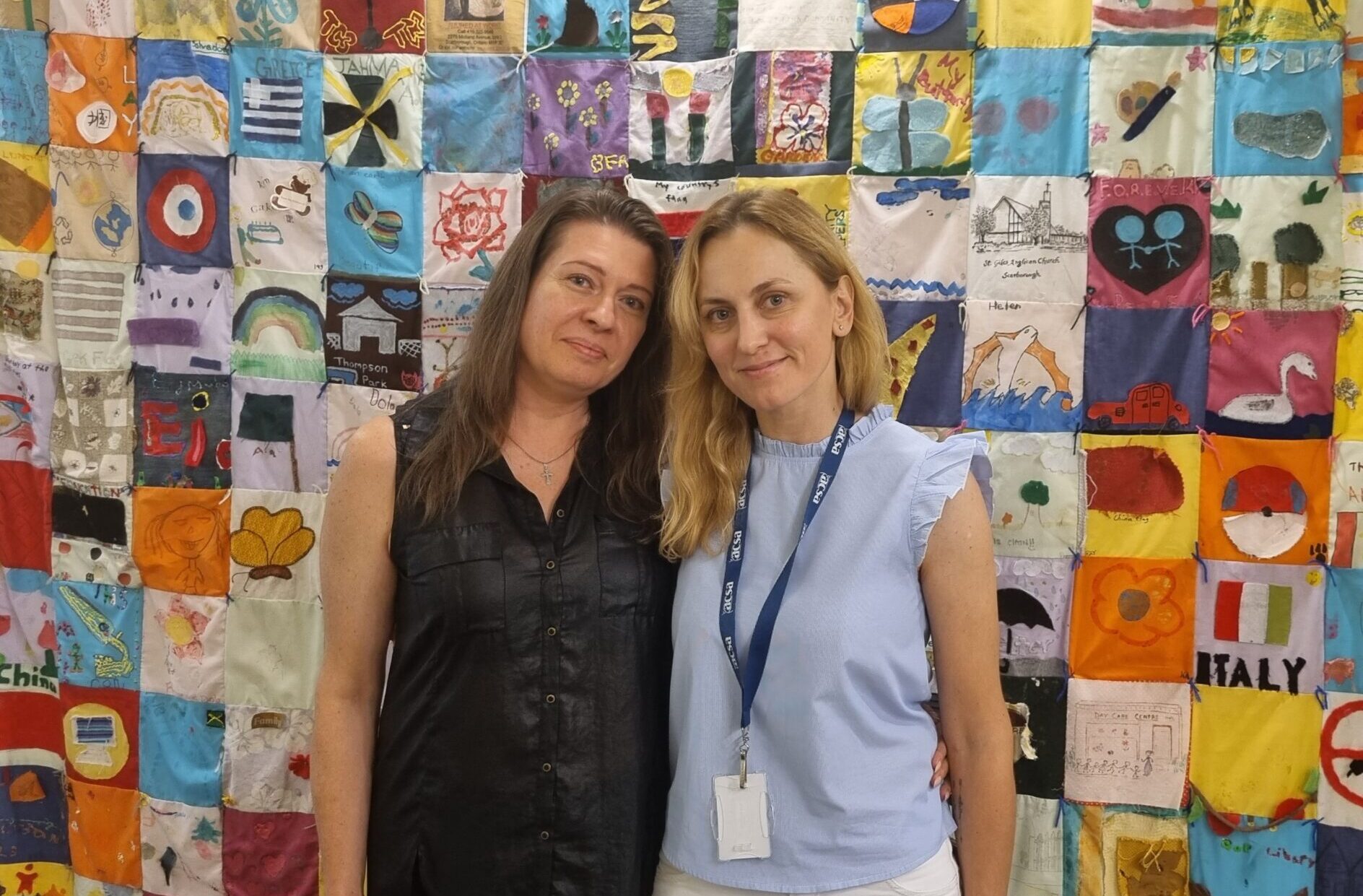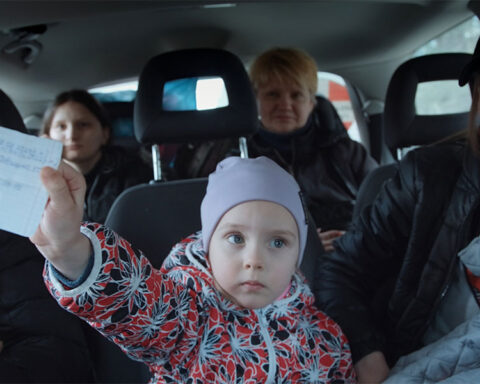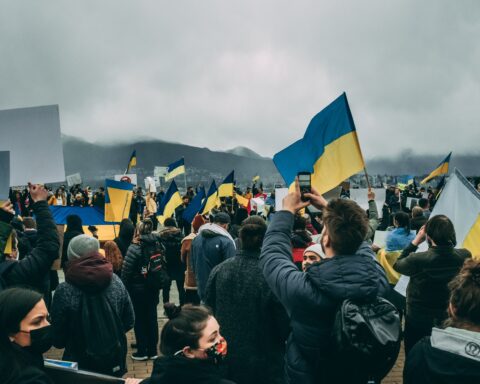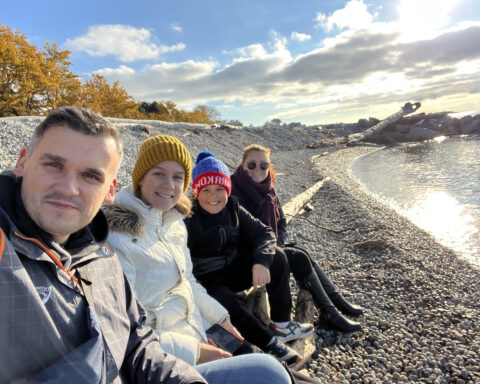Two women who came to Canada under a special provision for Ukrainians seeking refuge from the war have landed jobs as settlement counsellors to help others navigate the same challenges they experienced.
Inspired by the opportunities provided to them to start a new life, Svitlana Bondarenko and Iryna Nikitchyna help newcomer Ukrainians settle into life here by assisting with paperwork, accommodation, employment and education. Bondarenko works at YWCA Hamilton, while Nikitchyna is at Agincourt Community Services Association in Toronto.
The women came to Canada in August 2022 under the Canada Ukraine Authorization for Emergency Travel (CUAET) program. For both of them, memories of the ongoing war in Ukraine are still very vivid.
“I left my city, Kyiv, on the second day of the conflict,” said Nikitchyna, who arrived with her two children, aged seven and 10. “I stayed for a week more in western Ukraine, but then I left, because I was really worried about my kids…it was dangerous to stay there.”
With her brother currently fighting in Ukraine, and her husband having previously served in the military, Bondarenko understands the emotions of people who have family members fighting on the frontlines.
“When you have these experiences in your life, it is very tough, especially if you lose someone, if you lose friends because of the war, and it is very hard to even imagine that we will lose even more people,” said Bondarenko, who came to Canada with her mother, husband, son, and two dogs.
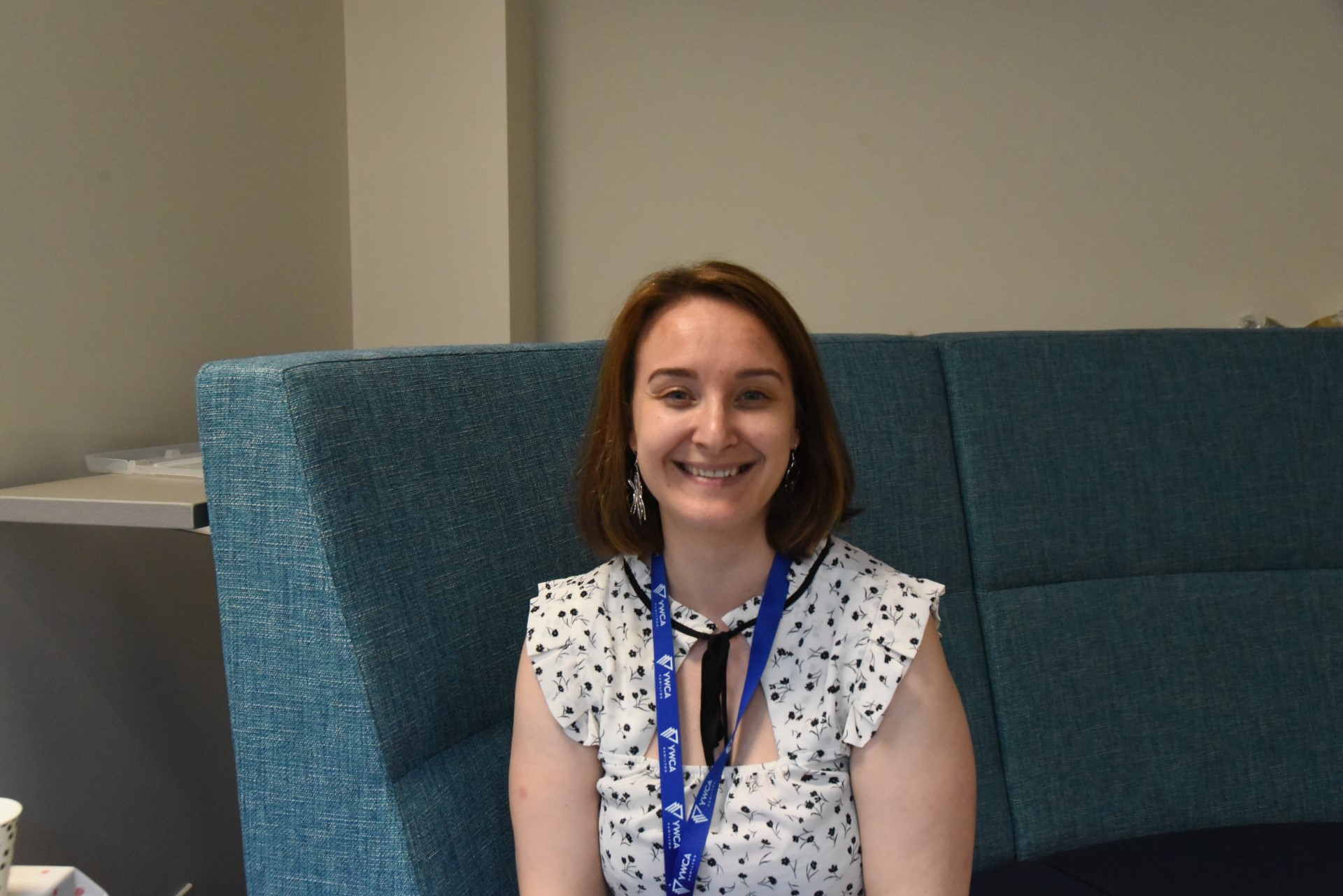
In 2014, following Russia’s annexation of Crimea, Bondarenko’s husband was called up for military service as part of a mobilization drive.
“When your country tells you to go and serve in the military, you have no option — it is mandatory,” she said. “They were told that this was a training program for 30 days, but it was a year filled with very tough experiences for my family.”
Since the arrival of the first Ukrainians under CUAET, Agincourt Community Services (ACSA) has helped more than 1,800 clients, while the Hamilton YWCA is currently assisting about 70 people at a time, and the numbers grow steadily each week.
“I stayed with my aunt and uncle, but many of those coming here don’t have relatives or friends, so they find it difficult to find accommodation,” said Nikitchyna, who worked as a recruiter in Ukraine.
“I wanted to help people who came here and didn’t have anyone. I was looking for volunteer work when I saw ACSA was hiring Ukrainian counsellors.”
She began working alongside Liana Rizikov, who came to Canada from Ukraine in 1991 and gave up her job as a musician to help the new Ukrainian arrivals.
After initially signing up part time in August 2022 to help with the influx of Ukrainian clients, Nikitchyna joined ACSA full time in November.
“In the beginning, I saw many, many women who were crying,” said Rizikov, who spent nine months in Ukraine before the war began. “It was really difficult, especially when mothers came alone with their kids, because there was no one to help them.
“There is also the language barrier — most of the people coming here don’t speak English. Imagine if you arrive, and you are given a free hotel stay for a week, but in that week, you have to do your documentation, your SIN (Social Insurance Number), your health card and photo ID. And during this time, you also have to find a job and an apartment…how can you do that?”
Bondarenko’s husband, a machine operator, got a job a couple weeks after their arrival, but Svitlana, who previously worked at a bank in Ukraine, found it a harder to gain employment. At a YWCA Hamilton Christmas event last year, she learned the agency was looking to hire a counsellor to help Ukrainian arrivals. She got the job in February.
A realtor of Ukrainian origin offered Bondarenko’s family a place to stay without any background checks, so long as they could pay their rent. Before arriving in Canada, they were given a place to stay for free when people in Poland opened their hearts to Ukrainians.
“I received so much help from others and I wanted to give back,” she said. “My clients come to me as a last resort. When we tell them that we will manage to do everything for them and find the right person who will help them with their issues, and when we actually do this, they smile, and this is the most rewarding part of the job.”
Community meetings are a major part of the services organized to help Ukrainians so they can share their feelings with others who have undergone the same challenges, and hopefully heal from the trauma of war that many of their families still face every day.
Sometimes dealing with their clients’ emotions, as well as their own, can take a toll on the women.
“We share a common grief,” Bondarenko said. “If you concentrate on what you’ve lost, it will only give you more pain. This is why I ask my clients to see a bigger picture.”
Added Nikitchyna: “It is difficult because each story goes inside your heart. But when you find yourself in a very unhappy position, and you help others, it makes you feel better.”
Gautam is a journalist, editor and content writer skilled in both digital and print media, who brings with him more than a decade of editorial experience across five countries, including Canada and the US. A member of the Canadian Association of Journalists, Gautam worked as Deputy Editor of the Times of Oman before moving to Canada, where he continues to write on healthcare, education, human interest stories, sport, lifestyle, and science and tech. Gautam has a Masters' Degree in journalism from the UK, and is fluent in both English and French. He lives in Toronto.

